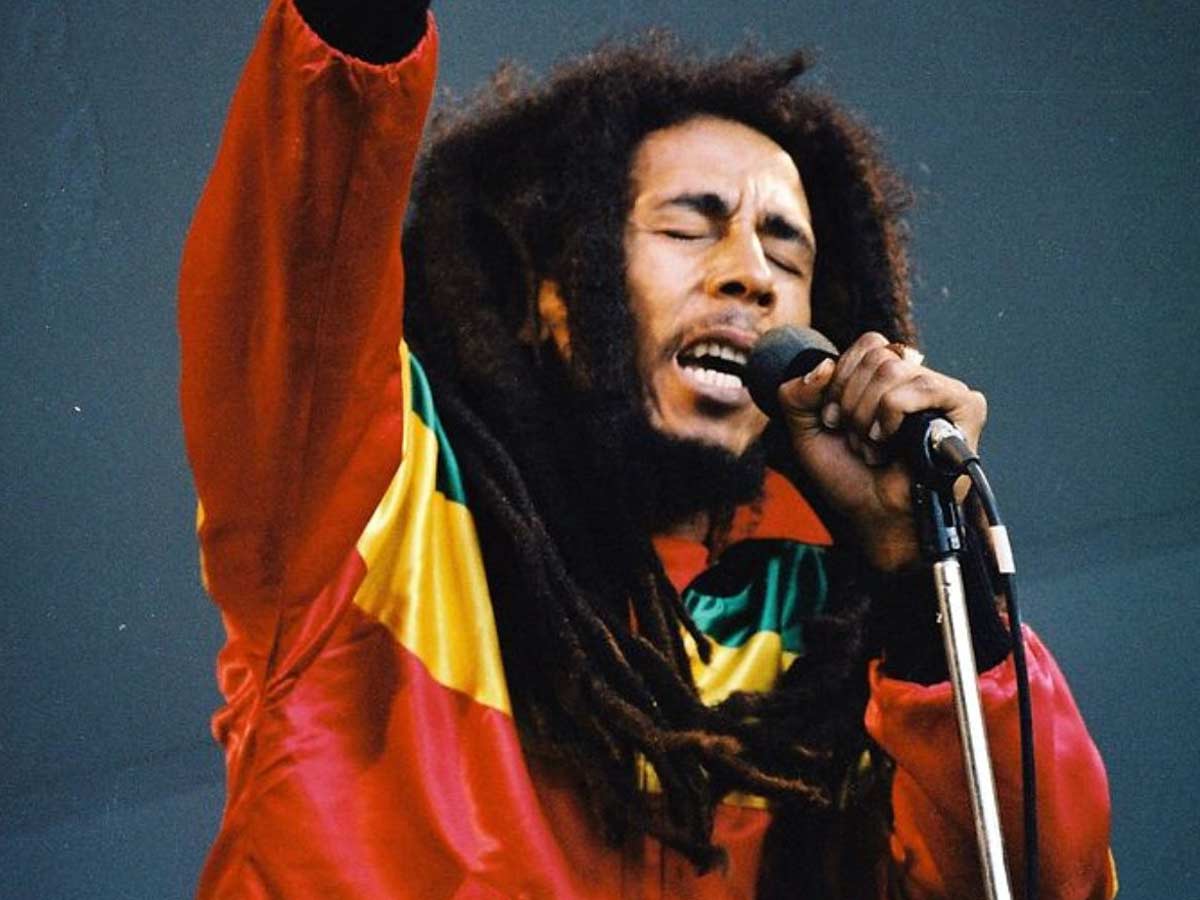Robert Nesta Marley aka Bob Marley was born on February 6, 1945, in Nine Mile, Saint Ann Parish, Colony of Jamaica. He was a singer, songwriter, and musician from Jamaica. His musical career was distinguished by merging elements of reggae, ska, and rocksteady and his distinctive voice and compositional approach.
He is regarded as one of the pioneers of reggae. Marley’s contributions to music raised the profile of Jamaican music around the world. They established him as a global icon in popular culture for more than a decade. Marley became regarded as a Rastafari icon throughout his career, and he instilled spirituality in his music. He is also regarded as a global symbol of Jamaican music, culture, and identity. He was controversial in his ardent support for marijuana legalization.
Marley’s professional musical career began in 1963 when he formed Bob Marley and the Wailers. The Wailing Wailers released their debut studio album, The Wailing Wailers, in 1965, which included the track “One Love/People Get Ready,” which became a worldwide hit and established the group as a rising reggae force.
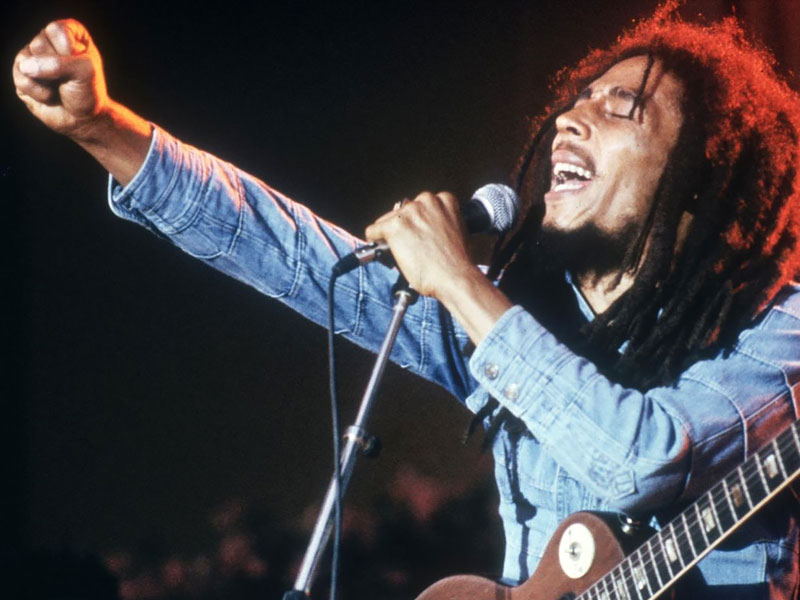
The Wailers made eleven more studio albums. However, they began with louder instruments and singing. The group began experimenting with rhythmic song composition in the late 1960s and early 1970s, coinciding with the singer’s conversion to Rastafari. During this time, Marley moved to London, and the group’s musical transition was symbolized by the release of the album The Best of The Wailers (1971)
Early Life
Robert Nesta Marley, better known as Bob Marley, was born in St. Ann, Jamaica, on February 6, 1945. His father was a captain from England, while his mother was a Jamaican citizen. Unfortunately, his father did not play a significant role in Bob Marley’s life. This is why he grew up in a remote area of Jamaica with his mother.
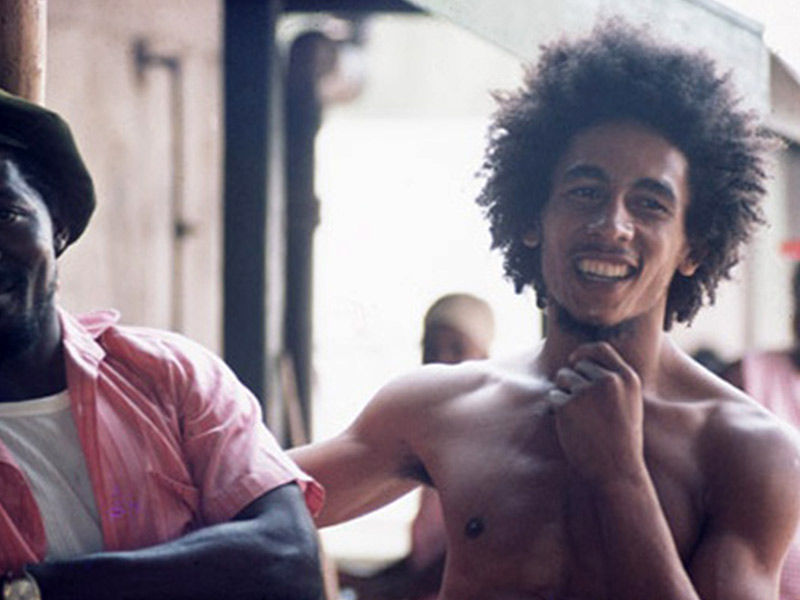
He relocated to Kingston in Trench Town, a tough part of town, when he was 12 years old. Bob met many singers while living in Kingston, but his favorites were Peter Tosh and Neville Bunny Livingston. They formed “The Wailers” as a group. After a string of successful songs, the group disbanded, and each of the singers launched a solo career.
Also Read, Shedding “One More Light” on the 21st-century vocal legend : Chester Bennington’s Musical…
Career
Even decades after his death, his music continues to speak to multitudes of people. Bob Marley’s music was created uniquely by the Rastafarian faith and way of life. He made the decision to speak out against the oppression. One of its songs even stated that he considers himself to be on God’s side, rather than on the side of black or white people.
He was and continues to be the pioneer of reggae music. Before him, this genre was less well-known and underappreciated. However, before becoming one of Jamaica’s most well-known and respected songwriters and singers, he encountered various difficulties and misunderstandings from all Jamaicans due to his Rastafarian religion and manner of life.
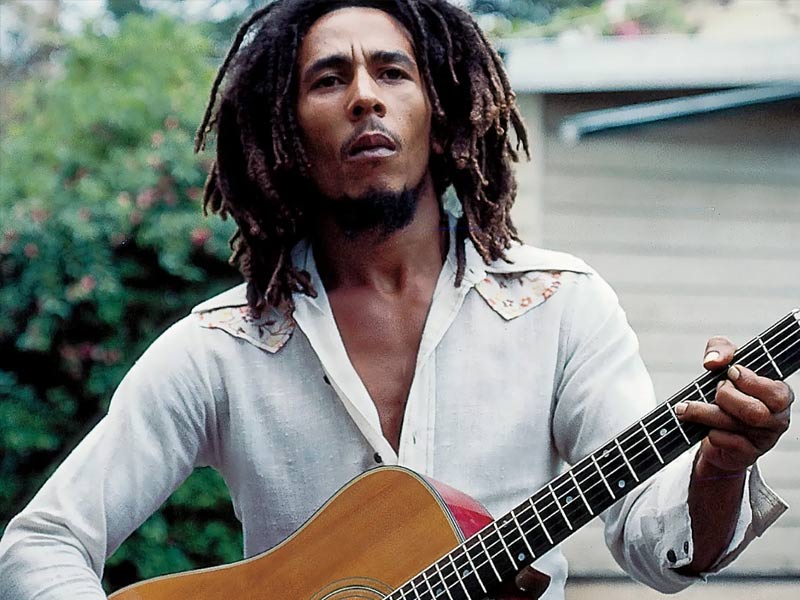
Because oppression, division, inequality, and economic difficulties controlled the world, he believed that he could help people via his music. His voice was eventually heard, and it became the voice of ordinary women and men. Because the Civil Rights leaders were either dead (Martin Luther King Jr.) or imprisoned (Nelson Mandela), Bob Marley’s statements were successful.
Songs like One Love gave people the courage to keep going and fight for what was right. Many songs have helped people connect and overcome their differences. Bob Marley thought that the world will change and that race would eventually become irrelevant when he wrote those words. Love and humanity should have been able to overcome all barriers.
Injury and Death
Bob Marley was playing football in France in 1977. This was one of his favorite pastimes. However, it was also the one that killed him. He suffered an injury to his big toe while playing and disregarded it for a long period.
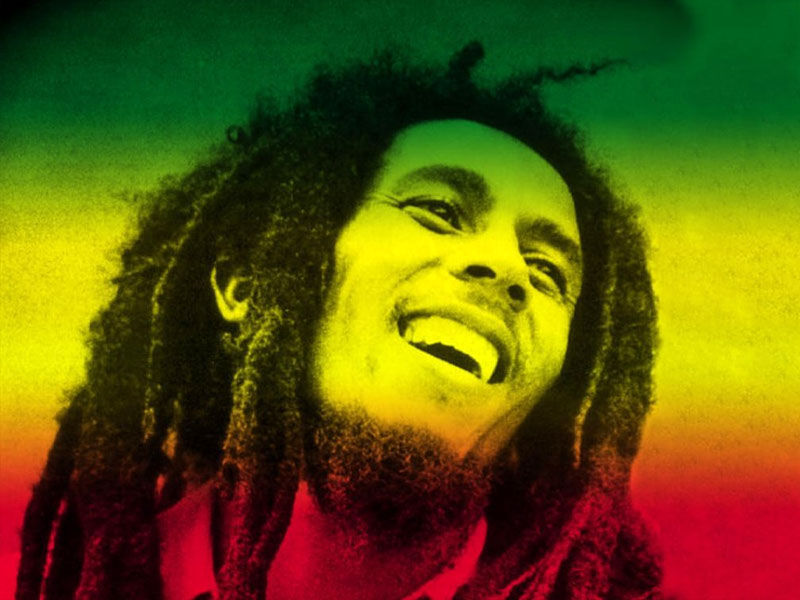
After his toe became infected, physicians informed him that he had melanoma, a type of skin cancer. Unfortunately, Marley refused to have his toe severed since he did not want to endure surgery. He then opted to see a Rastafarian doctor. The doctor intended to heal Bob Marley using a mixture of herbal therapies.
When Bob Marley concluded that herbal therapies were not working, he chose to have the big toe’s nail bed removed by specialists. Even though the surgery was a success, cancer spread throughout his body. In 1980, he fainted while running in New York City’s Central Park. He then learned that he would die as a result of the malignancy.
Doctors advised him to continue with his life since no treatment was available because cancer had spread. Bob Marley’s music continued to spread love and peace until 1981. He spent most of his time in the hospital after his last act in Pittsburg, attempting to recover, but the cancer was tougher.
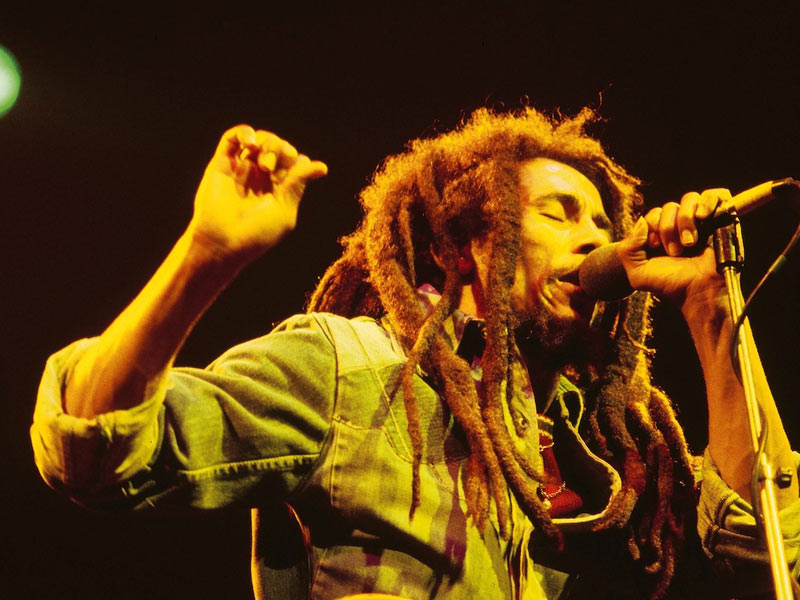
Bob Marley’s songs, composed and performed even years after his death, are legendary. They can bring people together, help them forget their differences, and spread love and peace worldwide. Bob Marley is a well-known figure in Jamaica, and he was awarded the Order of Merit posthumously.





















